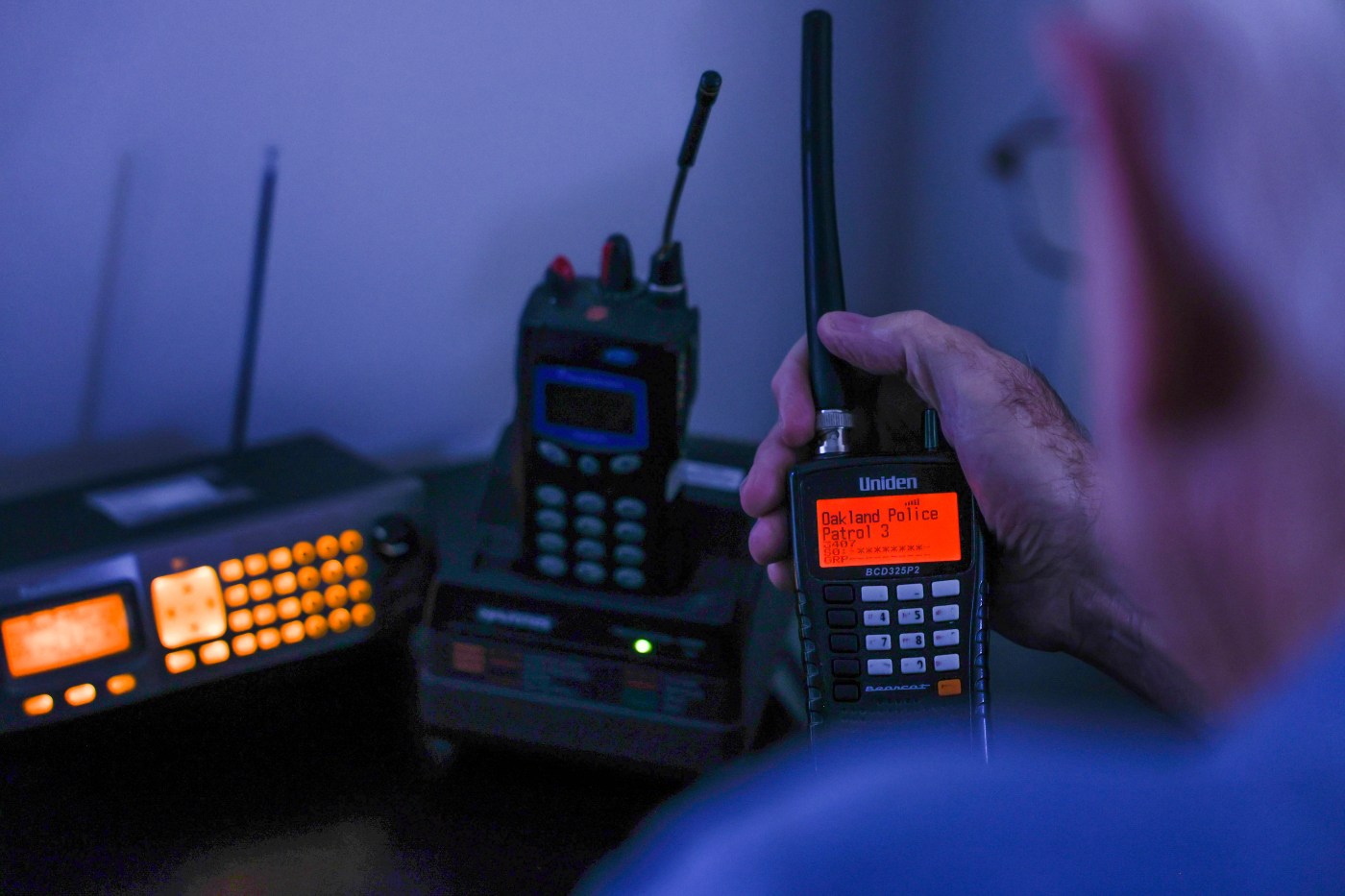
Law enforcement agencies across Contra Costa County began shielding their radio chatter from the public this week, ending decades of transparency and closing shut a key window into crime across the region.
Police and sheriff’s deputies started encrypting — or making secret — conversations between themselves and dispatchers before dawn Tuesday. Publicly-available feeds for the Concord and Pittsburg police departments, as well as for parts of the Contra Costa County Sheriff’s Office, went silent between the hours of 1 a.m. and 5 a.m. that day, suggesting the agencies had turned to private channels that are only accessible by other law enforcement officers.
In an unexpected turn, numerous agencies across Alameda County did not follow suit as planned Thursday — raising questions about the viability of an effort that cost millions of dollars and raised alarms among police accountability and First Amendment advocates.
Amid an apparent technical glitch, public radio feeds remained online Thursday morning for the Oakland, Emeryville, Fremont, Hayward, Newark and San Leandro police departments, along with the Alameda County Sheriff’s Office. In Oakland, the effort was expected to be delayed by two to three weeks.
A cause for the latest technical snafu remained unclear early Thursday afternoon. The East Bay Regional Communications System Authority’s leaders are “working through some issues related to the patching of channels,” David Swing, who leads the authority, wrote in an email Thursday around noon. He added that “the cut over in Contra Costa County was otherwise successful.”
The authority has been working for years to pull public access to officers’ by-the-second communications between themselves and the people assigned with dispatching them to incidents and crimes. That’s despite deep concerns by police accountability organizations, First Amendment advocates, several local attorneys and even a Bay Area state senator — all of whom claim the change flies in the face of transparency, while threatening the community’s ability to hold officers to account when they err on the job.
The authority’s first attempt at hiding officers’ radio chatter across the East Bay ended prematurely in September, when it encountered technical problems mere hours after switching to encrypted channels. Yet Swing announced last week that the problem had been identified and fixed, leading to this week’s planned changeover.
Law enforcement officials across the region say the move is needed after a 2020 directive by the California Department of Justice ordered law enforcement agencies to work harder to protect certain private information, such as Social Security and driver’s license numbers. Still, the DOJ did not require wholesale encryption of police radio channels.
Not every agency has gone to such measures. The Berkeley Police Department vowed last month to keep their radio conversations public. And the Palo Alto Police Department reversed course after initially encrypting its channels — re-opening them to the public, after citing the ability to use other means to protect private information mentioned in the 2020 directive.
Among the first agencies to encrypt their radio chatter this week was the Concord Police Department, whose publicly-available radio feed appeared to go silent around 1:30 a.m. Tuesday.
At the time, officers had just been called about a transient who had been sitting beside a dumpster all day and had just tried walking into someone’s home.
About 20 minutes later, someone got on the radio and asked: “Can you guys please switch over to channel 3? Channel 3 please? We’ll do roll call in about a minute.” The channel then went silent.
The switch marked a full-circle moment in Contra Costa County, which is home to one of the first law enforcement agencies in the state to shield its communications from the public.
The Antioch Police Department helped pioneer the effort in 2015, shortly before multiple scandals ripped through the agency amid claims of widespread civil rights abuses, violent arrest tactics and racist policing.
Three officers later pleaded guilty or were convicted at trial of either conspiracy or civil rights violations, while dozens of officers were placed on leave amid the discovery of years-long text exchanges that made frequent use of the n-word and referred to Black people as “gorillas” and “water buffalo.”
Jakob Rodgers is a senior breaking news reporter. Call, text or send him an encrypted message via Signal at 510-390-2351, or email him at [email protected].